Patient and Family Education in Radiation Oncology
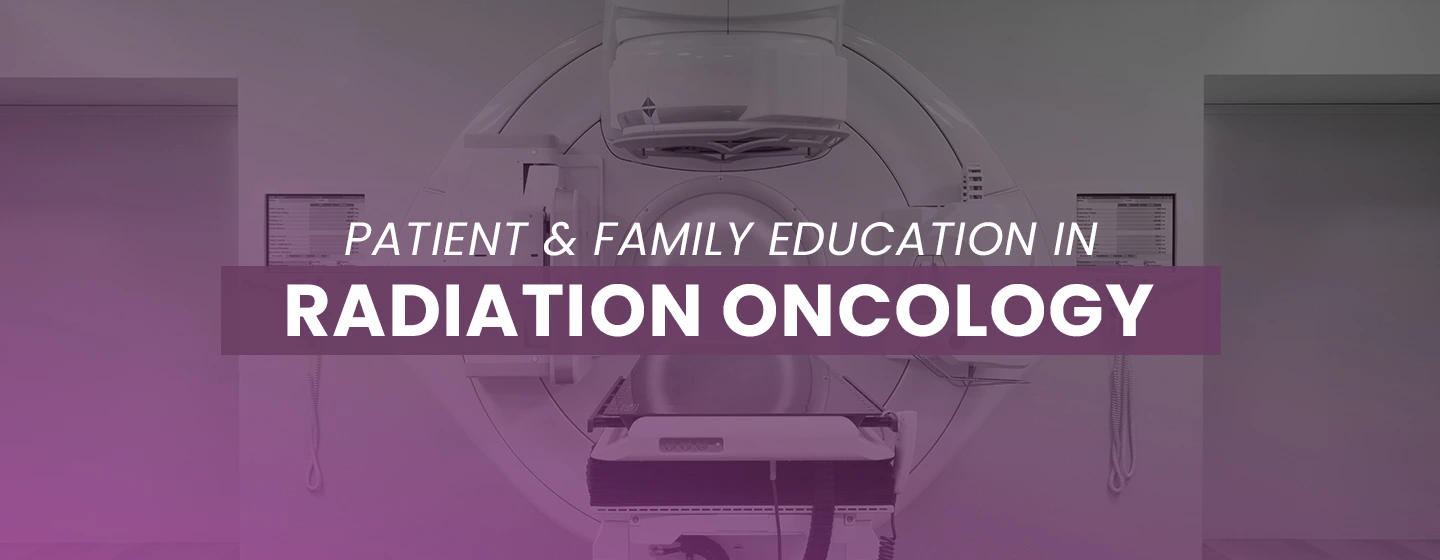
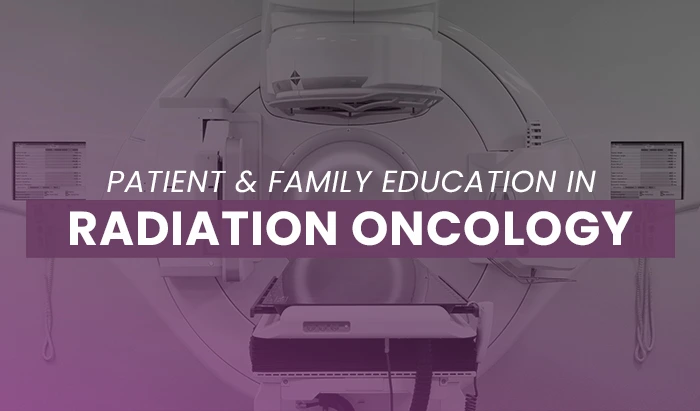
Radiation oncology is a medical specialty that involves the use of high-energy radiation to treat cancer. It works by damaging the DNA inside cancer cells, which stops their ability to grow and divide. Radiation oncologists work with the other members of the radiation oncology team to develop and execute a treatment plan that is tailored to the patient’s specific cancer diagnosis. But, there is much more to cancer patient care than the treatment plan itself. Providing high-quality care to patients in a radiation oncology department has multiple aspects, and concerns all the team, including radiation therapy technologists and nurses, who are in direct contact with the patient and their family throughout the treatment sessions. In this article, we highlight the importance of patient and family education, as an essential aspect of radiation oncology care.
Patient and family education is one essential aspect of patient care in radiation oncology.

Education plays a crucial role in ensuring that patients and their families have a comprehensive understanding of the treatment, potential side effects, how to manage them, and cope with the emotional aspects of cancer treatment. Usually, patient and family education falls among the responsibilities of the technologists, and the radiation oncology nurse. The following are some key areas where patient and family education can be particularly important:
[geot exclude_country=”FR, BE, GF, TF, GP, LU, MQ, YT, MC, ME, NC, RE, BL, MF, PM, SM, CH, WF, IT, DE”]
[/geot]
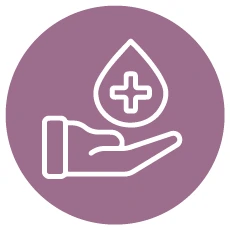
Family education can help patients understand the treatment, its goals, potential side effects, and how to manage them, which can reduce anxiety and improve the patient’s experience.

Family education helps them provide effective support to the patient by ensuring his compliance and motivation him to stay on track.
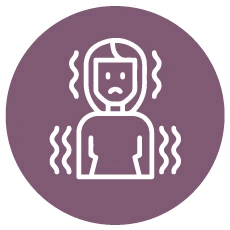
Patients and their families should be educated about the potential side effects of radiation therapy to optimize their management and improve the quality of life during treatment.

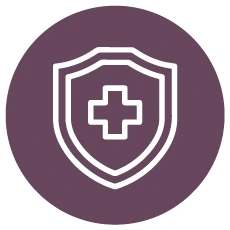
Patients and their families should be educated about the potential side effects of radiation therapy to optimize their management and improve the quality of life during treatment.
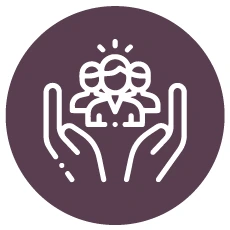
Emotional support plays a huge role in the treatment outcome. Patients should heard, understood, and their concerns and fears should be acknowledged. Family and friends can provide additional support to help patients manage their emotions and stress.

Providing information on insurance coverage and financial assistance programs is important to reduce the financial burden to the patient and their family.
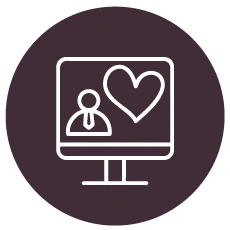
Patients and their families should be educated about the importance of follow-up care in radiation oncology, including regular check-ups, and monitoring for potential long-term side effects.
Overall, patient and family education in radiation oncology should be tailored to the individual patient’s needs and delivered in a clear and compassionate manner. By providing comprehensive education and support, the radiation oncology team can help patients and their families feel more informed and empowered throughout the radiation therapy process, which leads to reduced potential side effects, and better outcomes.
Disclaimer: The information provided on this website is intended to provide useful information to radiologic technologists. This information should not replace information provided by state, federal, or professional regulatory and authoritative bodies in the radiological technology industry. While Medical Professionals strives to always provide up-to-date and accurate information, laws, regulations, statutes, rules, and requirements may vary from one state to another and may change. Use of this information is entirely voluntary, and users should always refer to official regulatory bodies before acting on information. Users assume the entire risk as to the results of using the information provided, and in no event shall Medical Professionals be held liable for any direct, consequential, incidental or indirect damages suffered in the course of using the information provided. Medical Professionals hereby disclaims any responsibility for the consequences of any action(s) taken by any user as a result of using the information provided. Users hereby agree not to take action against, or seek to hold, or hold liable, Medical Professionals for the user’s use of the information provided.

